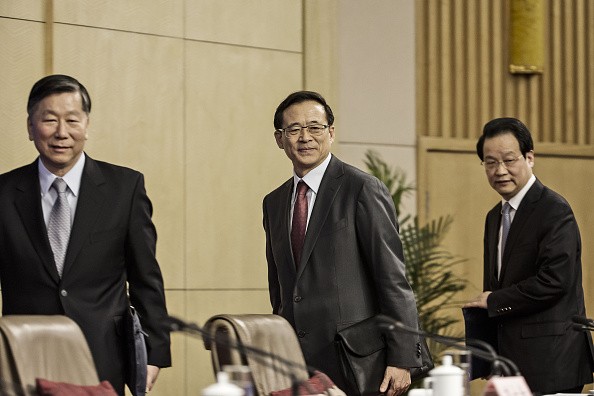Multinational companies operating in China are finding it hard to take money out of the country as Chinese regulators have imposed tougher restrictions on the flow of capital out of the China in a bid to slow the devaluation of the yuan.
According to The Wall Street Journal the new rules are also sowing anxiety and confusion in the process as transferring money has become easier in the past years. Analysts said some foreign companies may reconsider investing in the country in the future if they are uncertain of the returns.
In November, firms that want to exchange yuan into dollars need government approval, as well as transactions greater than $5 million. The government also imposed stricter limit on the transfer of bank accounts in China to other countries, known as "cross-border sweeping."
According to Alexander Tietze, managing director at Acon Actienbank AG, foreign investments in China may likely slow, as the restrictions could discourage foreign takeovers or new joint venture plans.
As few opportunities for reinvestment are present in China's slowing economy, many foreign companies feel it would be more difficult if their money will be trapped in the country.
"A majority of clients are currently consolidating and restructuring their China business," Bernd-Uwe Stucken, a lawyer with Pinsent Masons LLP in Shanghai, said.
Stucken added that some of their clients are closing down but did not make new investments.
In addition to the confusion caused by the new rules, companies are unclear of the limits as the official changes to the rules has not been published by Chinese regulators and instead issued only informal guidelines to the banks.
An official of a multinational firm said that companies can only take out of the country the amount that is equal to 30 percent of their assets in China, unlike the 100 percent allowed in the previous guideline. Further, the transaction that took previously one to three days, can now take more than a week to finish.
Joerg Wuttke, president of the European Chamber of Commerce in China, which represents more than 1,600 European companies, said that he knew several cases involving payments by multinational firms which have delayed as it awaits approval.
He added that the new rule could disrupt business and "exacerbates uncertainties regarding the predictability of China's investment environment".
According to the People's Bank of China, the yuan has devaluated by 7 percent this year while capital flight, which diminished the country's foreign currency stockpile, has reached about $3.05 trillion as of November, from $3.23 trillion in January.
Mikko Huotari, head of the China foreign relations research program at Mercator Institute for China Studies, a German think-tank, said that big firms are not the only ones affected by the new regulation, but also small and medium-sized firms, which often operate with limited funds.



























